Time For A Walk In The Snow
Behind the mountain station was a nice little valley with a walkway and plenty of space to play in th snow. Being old, we watched the kids and lide through them. We are indeed wise!

Down the path we went! The one mile nature walk was just fine

The snow was powery and as white as could be... Thanks to no cars

It was mid-30's on the trail
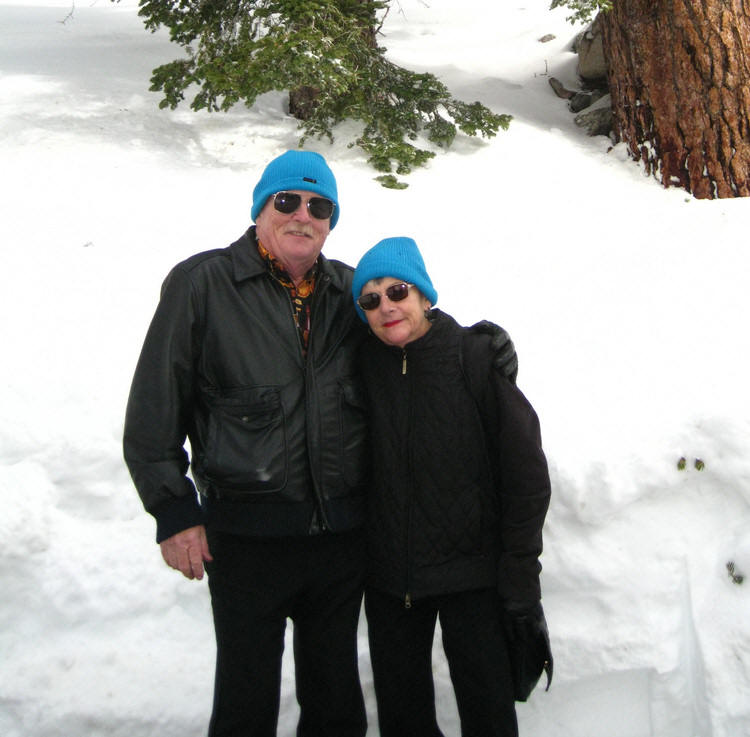
Nice folks took our pictures
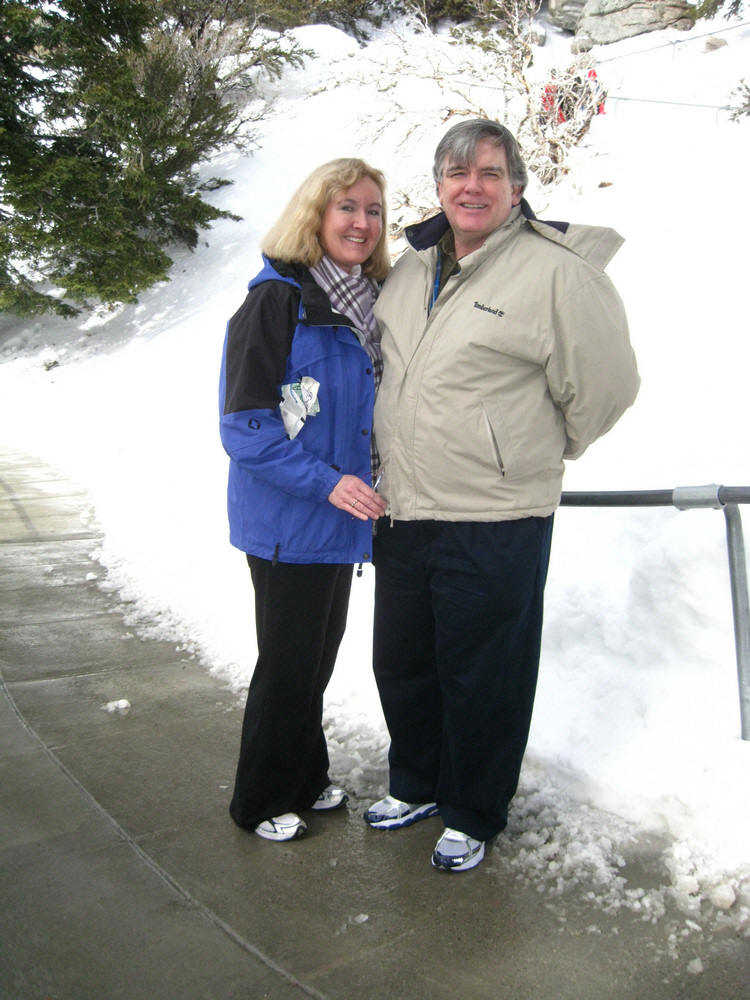
And we took theirs...

Yes... We walked all the way down the hill... About a mile

King of the snow.... Where are my boots???
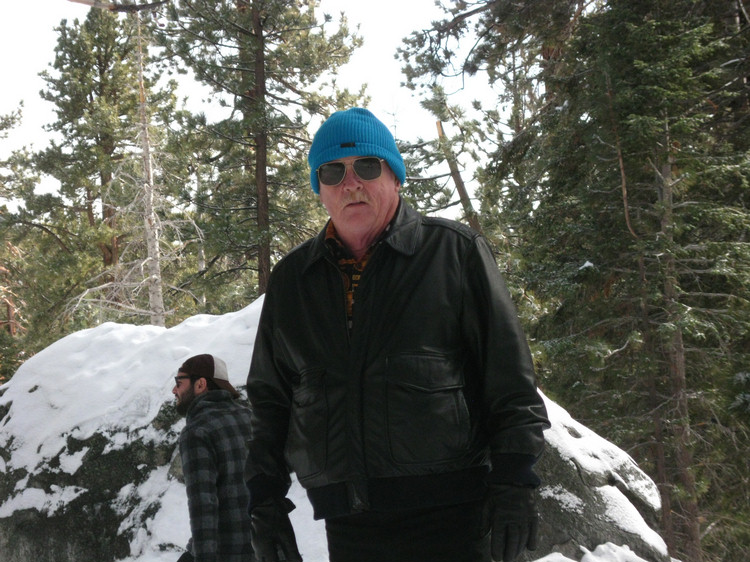
Paul's $6.00 Kohn's hat was a life saver

"This little snow ball can go 241 miles per hour if thrown out the window of an airplane!"


Don't laugh at the hairdo on this little guy!
Did you know? - A snowman is an anthropomorphic snow sculpture of a human. They are customarily built by children as part of a family project in celebration of winter. In some cases, participants in winter festivals will build large numbers of snowmen. Because a snowman is short-lived, it is a good example of popular installation art.
Bob Eckstein, author of The History of the Snowman documented snowmen from medieval times, by researching artistic depictions in European museums, art galleries, and libraries. The earliest documentation he found was a marginal illustration from a work titled Book of Hours from 1380, found in Koninklijke Bibliotheek, in The Hague.

Time To Return To The Mountain Station

The young man lives in Beverlywood.. Close of Michele's home
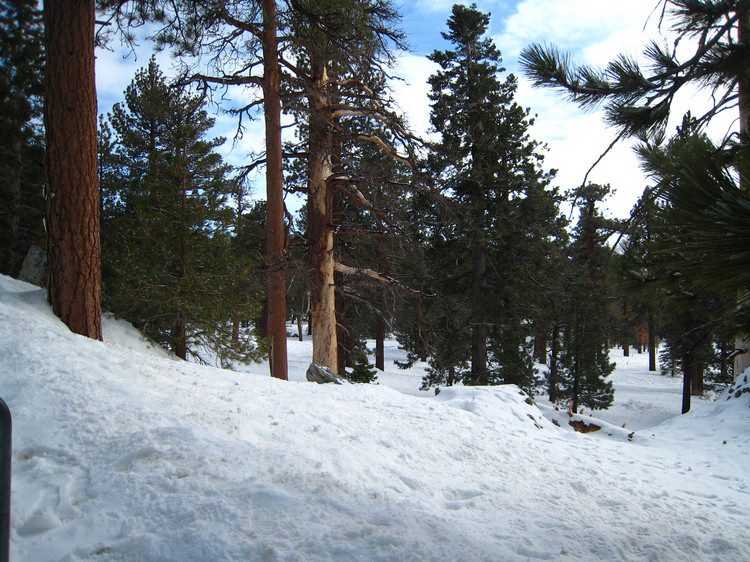
Cross country anyone?

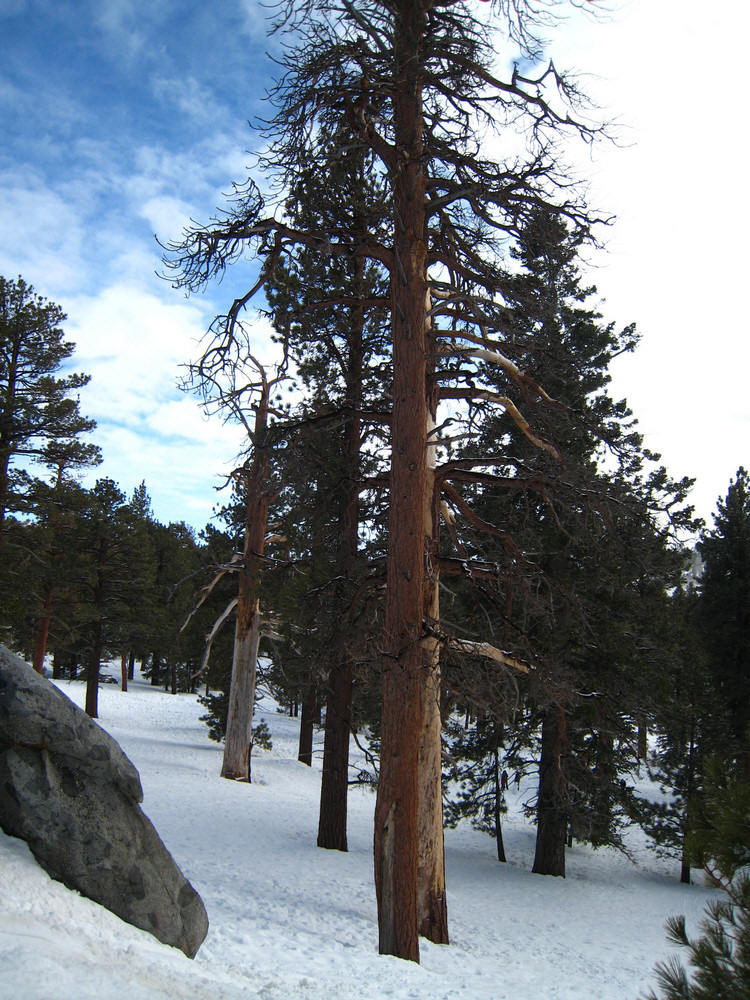
Water was dripping off the trees making for an interesting return home
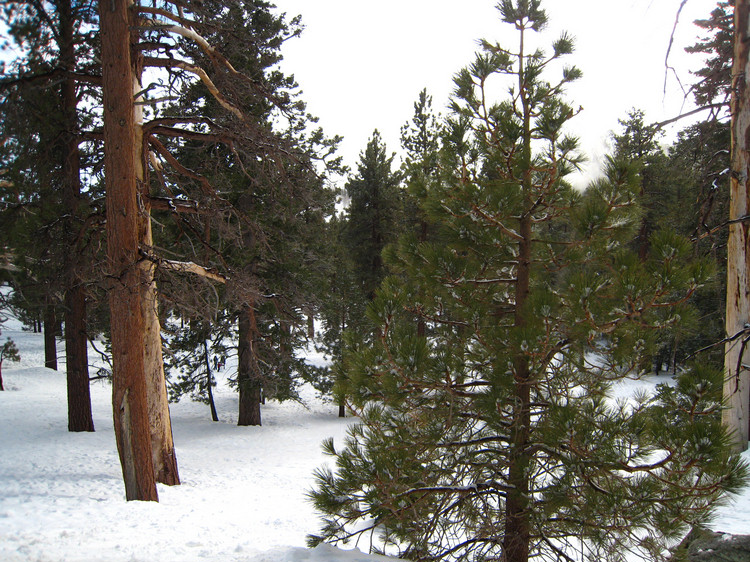

It was a long walk UP the hill!

The sky was blue and the clouds very white...
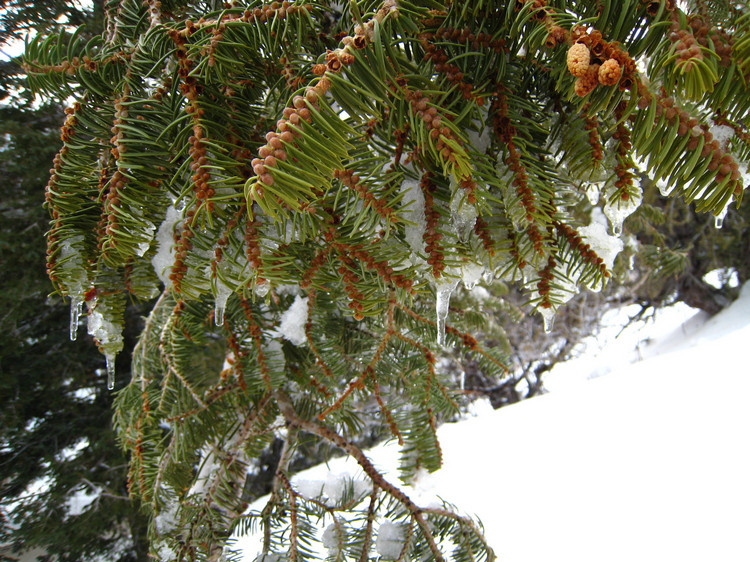
If the tree could talk it would say "Brrrrrrr!"

As we returned to the lodge
We Had A Glass Of Wine Before Heading Down

While we await the next car down

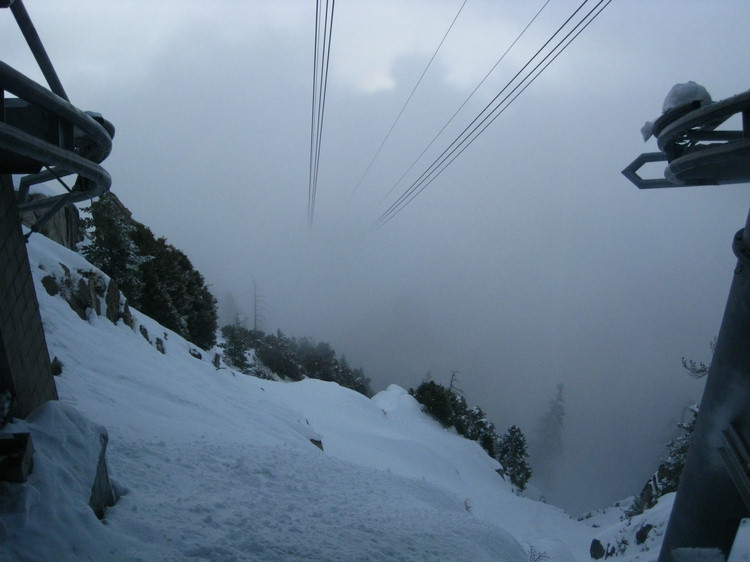
Tose cables disappear again!

As we clear the clouds the valley comes into focus
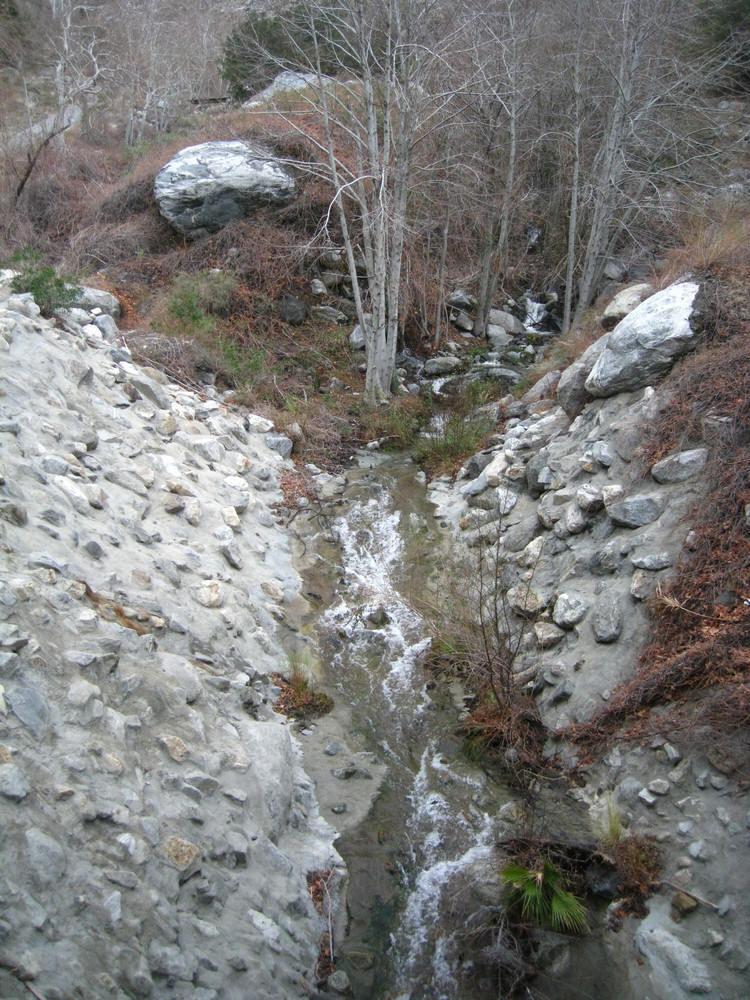
Ah... Terra Ferma!
We Decided To Look Up Robert Glaysher
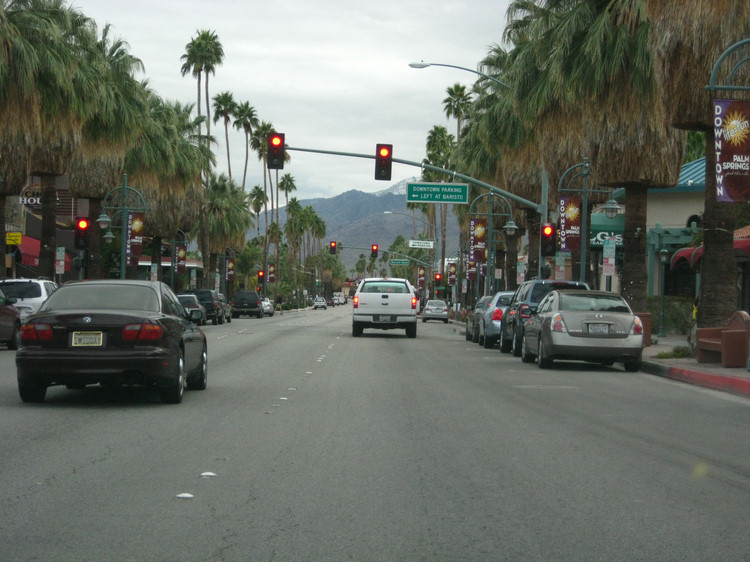
Then We Headed For Highway 74 To Go Through Idlewild And See Some Snow
Did you know? - State Route 74 (SR 74), a part of the Pines to Palms Scenic Byway, is a mostly scenic highway in the U.S. state of California. It runs from Palm Desert in Riverside County westward to San Juan Capistrano in Orange County.
The eastern terminus of the highway is just south of California State Route 111. As the highway leaves Palm Desert in a southerly direction near the Bighorn Country Club, the site of golf's "Battle at Bighorn," it begins a winding, 20 mile (32 km) journey to Garner Valley near the top of the Santa Rosa Mountains. This picturesque stretch is also referred to as the "Palms to Pines Highway." Even for those who have never been to California, the route is a familiar one. It is one of the most popular locations in the country for automotive periodical photo shoots and road tests. The stretch is also seen near the beginning of the 1963 motion picture feature, It's a Mad, Mad, Mad, Mad World.
The road straightens out considerably where it meets with State Route 371 near Anza, where Red Skelton had his home and art studio. Through Garner Valley, the scenery is among the finest in California. Sharp-eyed movie fans will recognize it as the road on which Elvis Presley drove his Model T on his way to the nearby village of Idyllwild in the movie, Kid Galahad.
Past Lake Hemet, Route 74 climbs back into the mountains for another 30 miles (48 km) of spectacular scenery on its way to Hemet where it becomes a surface street called Florida Avenue. It continues westward through the communities of Perris and Lake Elsinore. It merges with Interstate 215 for three miles (5 km) east of Perris before splitting in Perris, where it resumes its westward journey.
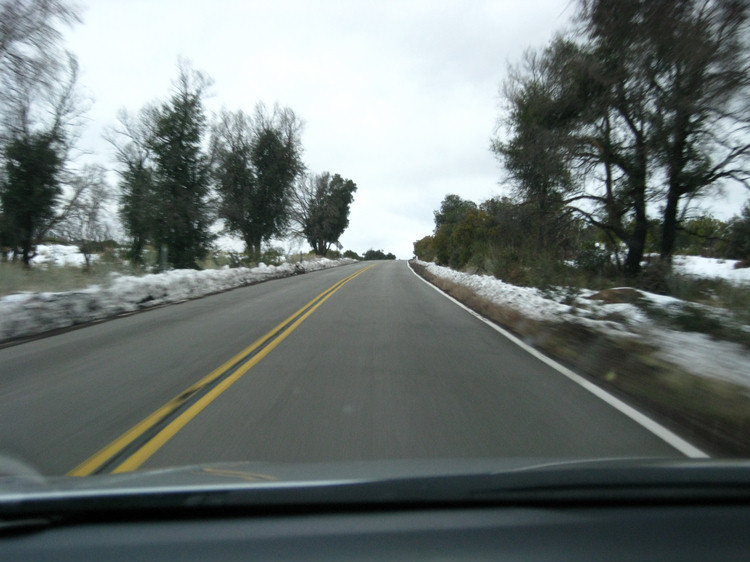
Snow everywhere.. We hit the peak at 4,600 feet
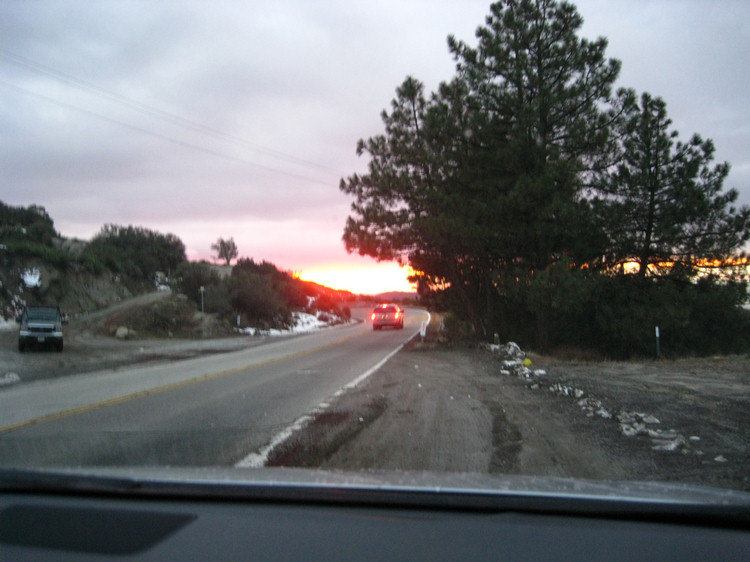
On the way down we saw a sunset!

The sky got red... really red!
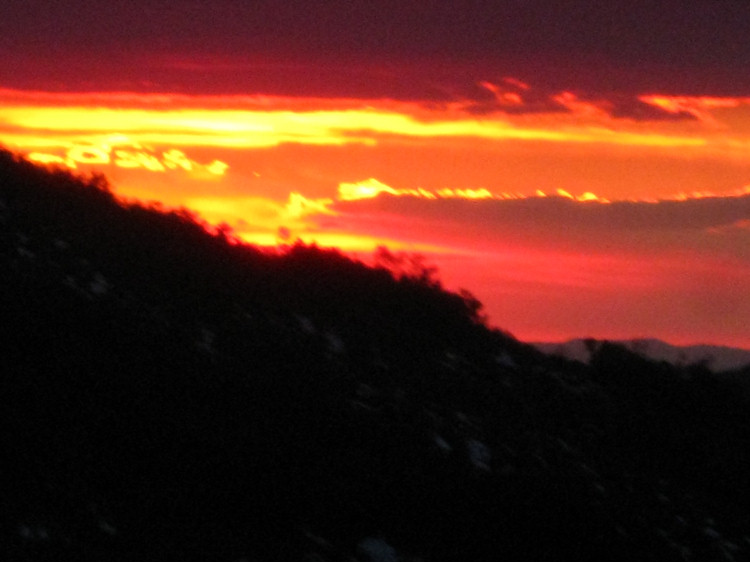
The Sun went down and made a fantastic display
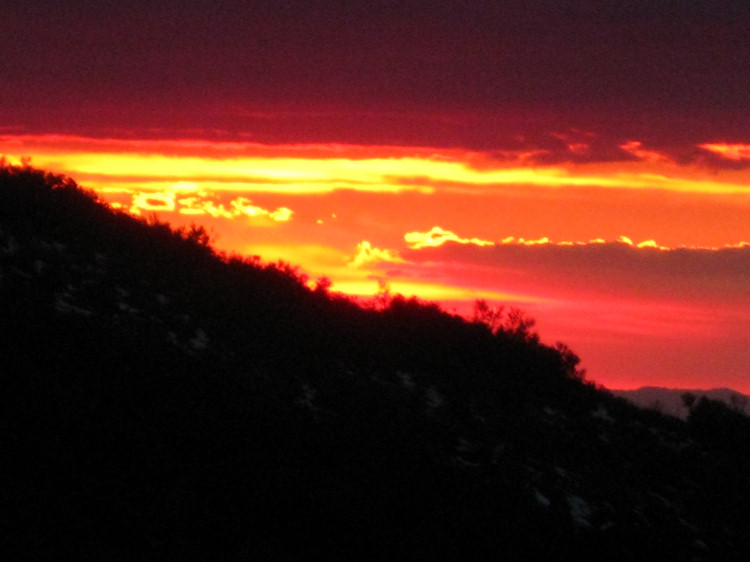
We pulled off the road to capture this one!
Did you know? - Sunset is the daily disappearance of the sun below the horizon as a result of the Earth's rotation. The atmospheric conditions created by the setting of the sun, occurring before and after it disappears below the horizon, are also commonly referred to as "sunset".
The time of sunset is defined in astronomy as the moment the trailing edge of the sun's disk disappears below the horizon in the west. Due to refraction of light in the atmosphere, the ray path of the setting sun is highly distorted near the horizon making the apparent astronomical sunset occur when the sun’s disk is already about one diameter below the horizon. Sunset should not be confused with dusk, which is the moment at which darkness falls, when the sun is about eighteen degrees below the horizon. The period between the astronomical sunset and dusk is called twilight.

We Arrive In Hemet
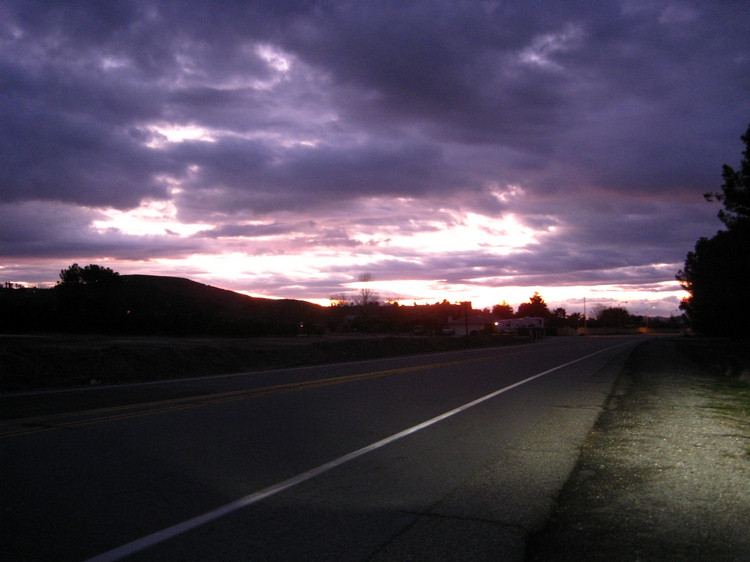
We pulled over to study the map for Soboba Springs
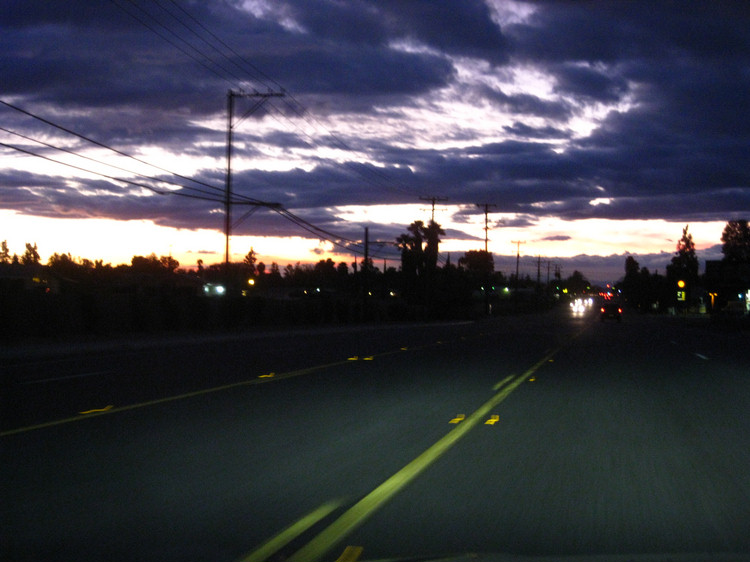
On our way to catch 60W/91W
We stopped at Soboba Springs Country Club for a glass of wine and to stretch our legs after the journey over the mountain! It was a great place to rest and got us ready for the jaunt to our home.